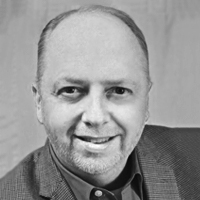This text-based course is a transcript of the webinar, “The AUDacity of Listening: New Opportunities for Language & Learning for Young Children with Hearing Loss - Part 1,” presented by K. Todd Houston, PhD, CCC-SLP, LSLS, Cert AVT.
>> Dr. Todd Houston: It is my pleasure to do another presentation for SpeechPathology.com and especially this one, which is very important to me personally. One of my areas of focus professionally for a number of years has been working with children with hearing loss who are learning to listen and use spoken language. We will focus most of our time talking about how to set up a program of support, mainly focusing on early intervention for infants and toddlers and working with families. How do we set that up so that these children can be successful?
Our learning objectives for this course are the incidence and prevalence of pediatric hearing loss. We will look at some of the trends in early detection and intervention, what it means to be family-centered in our practice, and describe some approaches that support auditory learning that can be used with families.
One thing that we need to take into account is children with hearing loss are not from a homogeneous group. This means that there is probably no single communication methodology that is going to be appropriate for all children. We have to recognize that families may make different choices. Families may decide to use Auditory Verbal Therapy, for example, which we will talk about. They may decide to use American Sign Language or cued speech or some other methodology. At the end of the day, what is important is that families have information to make an informed decision about the desired outcomes that they want for their child and their family. That is what it comes down to. Families have to have information to make an informed decision. With that in mind, I certainly support families having information about all the different communication methodologies and making that educated decision, or informed decision, about their child and family.
There are many changes happening in the field in terms of early identification and early use of hearing technology that are creating more opportunity for children with hearing loss to learn to listen and talk. That is what we will focus on in this course. I recognize that there are a range of different communication methodologies available and families need to choose what is best for them.
AUDacity of Listening
When we think about “AUDacity of listening,” what is the word ‘audacity.’ There is a play on the audiology and the listening part of this obviously with ‘AUD’ in ‘audacity.’ The audacity of listening is “How dare these children, who sometimes have severe and profound hearing loss, have access to listening and spoken language?” That is really what we have seen today. We have many different factors coming together for these children from universal newborn hearing screening to great hearing technology to cochlear implantation. We know with high expectations for listening and comprehension, these children can learn to listen and use spoken language. At the end of the day, if we can work to improve a child's auditory capacity (i.e. being able to listen and process information) and use the technology that has been prescribed to them, then we can keep them developmentally in sequence or in synchrony. If we identify these children early enough as infants, we can maintain that developmental synchrony and they can learn to listen and develop language very similar to typical developing children. That is ultimately our goal if we do our jobs the right way.

